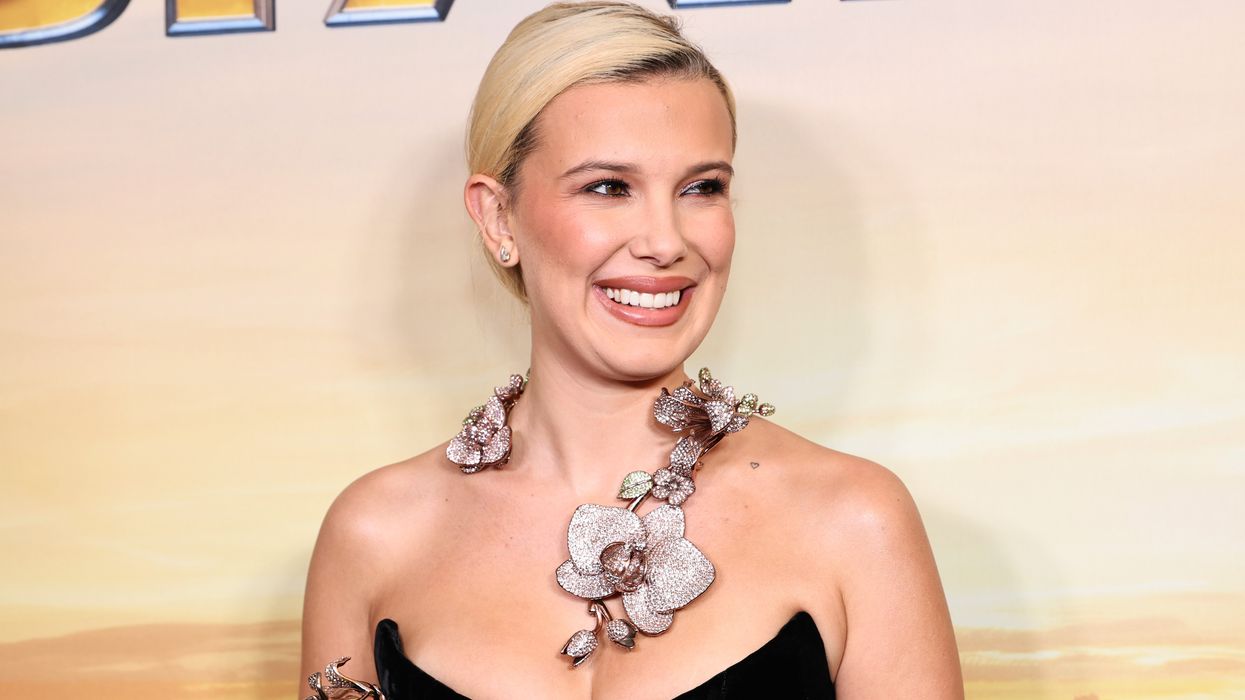At just 21 years old, Millie Bobby Brown has already secured her place as a prominent figure in the entertainment industry. The star of Stranger Things, who first captivated audiences with her portrayal of Eleven, now finds herself at the forefront of Netflix’s most high-profile projects. However, her latest role in The Electric State, a mindbogglingly expensive Netflix sci-fi film, has sparked mixed reactions and raised questions about her trajectory as a ‘Stream Queen’ – a title that comes with both acclaim and criticism.
The Electric State, in which Brown stars alongside Chris Pratt, has not been warmly received by critics. Described by The Independent's Clarisse Loughrey as “punishingly obvious and completely incoherent,” the film’s one-star reviews have been echoed by many others. The movie, which centres around two hollow characters moving aimlessly through a barren plot, seems to be yet another forgettable venture in Brown’s recent streak of Netflix productions.
In addition to The Electric State, Brown has produced and starred in the Enola Holmes franchise and the fantasy thriller Damsel. These films, though successful in viewership numbers, have failed to showcase her potential as a heavyweight actor. Unlike some of her contemporaries – such as Jenna Ortega from Wednesday or Jonathan Bailey from Bridgerton – who have seamlessly transitioned into theatrically released films, Brown has remained in the orbit of straight-to-streaming content, with few big-screen ventures outside of the Godzilla blockbusters.
The 'Stream Queen' phenomenon
While Brown’s Netflix films may not be critical darlings, they are undeniably popular. With a massive social media following, including 64 million Instagram followers, Brown has cultivated a unique kind of stardom. Damsel, despite its lukewarm reception, garnered 143 million views, making it one of the most-watched films of the year. This viewership is a testament to her ability to draw in audiences, even if the films themselves lack artistic depth.
In a world where streaming services like Netflix have blurred the lines between TV and cinema, Brown has become the face of this new era. Historically, actors were confined to either television or film, and crossing between the two was a rare achievement. However, with the advent of streaming, the distinction has become less clear, and the notion of a ‘streaming actor’ has emerged – a role Brown seems to have embraced.
There are comparisons to be drawn between Brown and her The Electric State co-star, Chris Pratt. Pratt, who rose to fame with his role in Parks and Recreation, has since starred in big-budget blockbusters such as Jurassic World and Guardians of the Galaxy. However, he has also made several direct-to-streaming films like The Tomorrow War, which have garnered a reputation for being underwhelming and lacking substance. Both actors seem drawn to projects with high budgets but little artistic merit – content that is easily consumed but quickly forgotten.
Brown’s relationship with cinema
One aspect of Brown’s career that sets her apart from other young actors is her apparent indifference towards cinema as an art form. In an interview with The Sun, she admitted to rarely watching movies and finding it difficult to engage with them. “I don’t watch movies. People say, ‘You should definitely watch this movie; it would change your life.’ And I’m like, ‘How long do I have to sit there for?’” she said. This attitude stands in contrast to her contemporaries, who often express deep passion for cinema and view it as a craft to be honed and explored.
Brown’s disinterest in film may explain why she has become such a perfect fit for Netflix. The streaming giant has been criticised for prioritising quantity over quality, producing content that is designed to be consumed passively. In many cases, Netflix films cater to an audience that isn’t fully engaged – viewers who are often multitasking or watching with divided attention. It seems fitting that Brown, who herself admits to struggling with the patience to watch films, has become the poster child for a platform that treats cinema more like disposable content than an art form.





